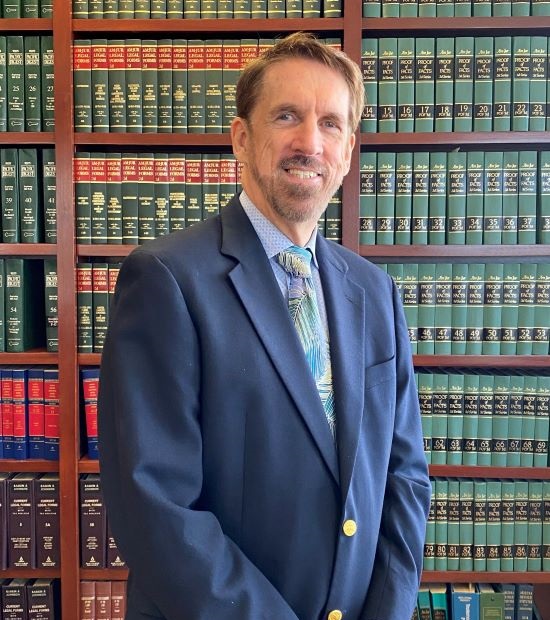- BUSINESS LAW
- Arizona Representation for Out-of-State Businesses
- Mergers & Acquisitions
- Buying or Selling a Business in Arizona
- Church Law
- Commercial Leases
- Construction Contract Issues
- Construction Law
- Construction Litigation
- Contracts & Transactions
- Division of Business Assets
- Health Care Law
- International Business Law
- Internet Law
- Medical Practice
- Partnership Law
- Small Business
- Solar Power and Renewable Energy Law
- INTELLECTUAL PROPERTY
- Copyright Law
- Cybersecurity & Data Breach Laws
- Intellectual Property Infringement
- Trademark Law
- Trade Secrets and Proprietary Information
- STARTING A BUSINESS IN ARIZONA
- Arizona C-Corporations & S-Corporations
- Buy-Sell Agreements
- Corporation Shareholder & LLC Operating Agreements
- Form an LLC in Arizona
- Organizational Engineering
- Partnerships in Arizona
- Protection of Personal Assets
- Reasons to Start Your Own Business
- COMMERCIAL LITIGATION
- Appellate Practice
- Aviation Contract & Lien Disputes
- Breach of Fiduciary Duties
- Breach of Sales, Service & Supply Agreements
- Business Disparagement & Defamation
- Business Purchase Dispute Litigation
- Business Torts
- Federal Court Litigation
- Franchising Litigation
- Fraud & Misrepresentation
- Tortious Interference
- BUSINESS DIVORCE & DISPUTES
- Dissolutions & Partnership Disputes
- Shareholder Derivative Suits
- EMPLOYMENT AGREEMENTS & ISSUES
- Employment Contracts
- Breach of Non-Compete Agreements
- Employment & Labor
- Restrictive Covenants
- OTHER PRACTICE AREAS
- Alternative Dispute Resolution
- Asset & Liability Protection
- Asset Protection Trusts
- Entertainment Law
- Wills & Healthcare Directives
-
WHITE-COLLAR CRIME, REGULATORY &
INTERNAL INVESTIGATIONS - White-Collar Criminal Defense
- Regulatory Compliance & Enforcement
- Internal Investigations
Search Site
Office Location : 3200 North Central Avenue, Suite 2500, Phoenix, Arizona 85012
We are open and ready to serve you. We offer video, phone and email consultations.
Litigation and transactions work can be done remotely.
Click Here to Learn More on How a Case Evaluator Can Assist
We are open and ready to serve you. We offer video, phone and email consultations.
Litigation and transactions work can be done remotely.
Click Here to Learn More on How a Case Evaluator Can Assist
Surprise, hidden information, and secret witnesses or documents a la Perry Mason have not been allowed under the rule of legal procedure since the 1940’s. Since that time the rules of procedure have required each side to provide and obtain full information to and from the other. This process is called “discovery”. Various discovery tools include: “interrogatories” (i.e. written questions which must be answered within a certain time), requests for production of documents and subpoenas duces tecum (which are commands for documents to the other side and third parties), requests for admissions (which if not denied, are deemed admitted; and if improperly denied, result in sanctions), and depositions. Depositions are questions and answers, taken under oath, in front of a court reporter in the lawyer’s office. Of these “discovery tools” depositions are the most useful and powerful, particularly under the modern rules.
During the 1970’s and 80’s, law firms, particularly large law firms, hired associates “by the dozen” to draft discovery documents. The larger firm could bury the smaller firm under an avalanche of discovery. This “avalanche” could include 180-page interrogatories, requests for a mountain of documents, and production of an ocean of documents that the smaller firm could not begin to wade through. Depositions went on for days, with multiple experts retained. And the experts and the attorneys were “all on the clock”.
Now, under Federal Rules of Civil Procedure used in federal courts, variations of which have been adopted by many states, including Arizona, each party to a lawsuit must, within a given time after the Answer to the Complaint is filed, prepare and produce a “Disclosure Statement” to the other side. The purpose of the Disclosure Statement is to provide full information of facts, documents and witnesses.
In those states which have adopted the Federal Rules, recent changes in the rules greatly limit the number of interrogatories, the need for document requests, and the number and length of depositions. The goal is faster, cheaper and fairer litigation. One prime result of these changes has been to “level the playing field” between large and small clients and law firms. Strict limits on discovery prevent the large client or law firm from overwhelming the smaller one. Thus, litigation has become much more fair for the smaller firm and client.
Another factor which has dramatically changed the practice of law is technology. Before the advent of the personal computer and on-line legal services, the large firm had a significant advantage over the small firm due to the quality and number of its staff, library and other resources.
Now, the large firm may have dis-economies of scale. Many established law firms have made huge financial commitments to their law libraries. The major components of a law library are the statute codes and case reporter volumes from various jurisdictions. Most established law firm libraries contain past volumes of the statutes and reporters, plus their updates.
Statutes are the law enacted by the legislature, with annotations (or “write-ups”) describing how the statute has been applied in particular cases. Reporters contain the actual case decisions by the appellate courts on various legal issues. Reporters are issued periodically, usually one or two per year for each set.
Because of their prior investment in books, the rapid evolution of technology has placed the established large firms in somewhat of a “Catch-22” position. To preserve the value of its library, the firm must continue to buy the new reporters and updates. Otherwise, the library will become obsolete and lose its value. The result is a sizeable wasted expense or write off.
On the other hand, if the firm does maintain its investment in books, then it may be simply duplicating what is now available on “on-line” computer services. Virtually every law firm, large or small, already has access to these on-line research networks. Thus, the firm does not really need the hard-bound books.
Many new firms no longer bother to invest in law libraries, at least in the traditional sense. The law of every state, statute or appellate decision, is now available on an “on-line” service, such as Lexis, Westlaw or Fastcase, within 24 hours. Because of this availability, not only are most law books unnecessary, but the tenant space needed for the books is now unnecessary.
Because of this dramatic substitution of computer technology and data for books, newer, smaller firms no longer suffer a disadvantage in resources. In fact, the reverse is true. Established, larger firms have “sunk costs” and overhead that the new firm need not carry. The costs must be passed on to the client.
Together, mandatory disclosure, computer research, smaller and specialized firms are dramatically changing the practice of law. Simply put, while the large firm may continue to have great resources and excellent attorneys, it has lost many of its traditional practice advantages.
When we combine these dis-incentives to size with the change in the legal paradigm itself, i.e. the change from law as a monopolistic collegiate club to a competitive business with free market advertising, the result is a revolution in the provision of legal services. Law is now a “brave new world”, not in the Huxlien sense of government omnipresence and control, but of lawyers facing the trials and tribulations of market capitalism.
Pay Your Bill Online
Use our easy-to-use and secure online payment feature to pay your bill. We accept all major credit cards.
Pay Your Bill
Contact us





















